A revised handbook on how to plan a meeting or conference addresses site selection, contract negotiation, publicity, entertainment, scheduling, setting up and breaking down, event logistics, menus, A/V requirements, budgeting and expenses, and emergencies. Original
The Complete Idiot’s Guide to Meeting & Event Planning, 2ndEdition Paperback
KSh 2,000.00
A revised handbook on how to plan a meeting or conference addresses site selection, contract negotiation, publicity, entertainment, scheduling, setting up and breaking down, event logistics, menus, A/V requirements, budgeting and expenses, and emergencies. Original
1 in stock
Related products
-
Managing Transitions: Making The Most Of Change
KSh 1,295.00In Managing Transitions, William Bridges provides a clear understanding of what change does to employees and what employees in transition can do .The business world is constantly transforming. When restructures, mergers, bankruptcies, and layoffs hit the workplace, employees and managers naturally find the resulting situational shifts to be challenging. But the psychological transitions that accompany them are even more stressful. Organizational transitions affect people; it is always people, rather than a company, who have to embrace a new situation and carry out the corresponding change.
As veteran business consultant William Bridges explains, transition is successful when employees have a purpose, a plan, and a part to play. This indispensable guide is now updated to reflect the challenges of today’s ever-changing, always-on, and globally connected workplaces. Directed at managers on all rungs of the corporate ladder, this expanded edition of the classic bestseller provides practical, step-by-step strategies for minimizing disruptions and navigating uncertain times.
-
Good To Great- Jim Collins
KSh 1,695.00After a five-year research project, Jim Collins concludes that good to great can and does happen. In this book, he uncovers the underlying variables that enable any type of organisation to make the leap from good to great while other organisations remain only good. Rigorously supported by evidence, his findings are surprising – at times even shocking – to the modern mind.
Good to Great achieves a rare distinction: a management book full of vital ideas that reads as well as a fast-paced novel. It is widely regarded as one of the most important business books ever written.
-
The ABC’s of Building a Business Team That Wins: The Invisible Code of Honor That Takes Ordinary People and Turns Them into a Championship Team (Rich Dad’s Advisors) Paperback
KSh 1,000.00Presents straightforward guidelines on how to govern the internal operations of companies, families, and one’s own personal life citing the benefits of applying team-based strategies for winning results.
-
Powerful Proposals: How to Give Your Business the Winning Edge
KSh 995.00How does a company constantly win more business than its rivals? A key factor is the ability to create proposals that outshine those from even the strongest competitors. Powerful Proposals helps businesses maximize the selling power of their proposals, with proven strategies for going beyond “this is what we do” documents in favor of customer-centered offers that highlight the tangible benefits your company offers. This powerful process offers tools and techniques that will let any firm: * assess their “winner or loser” proposal status and take proactive steps to become a winner * address the “”Big Four”” questions that a proposal must answer to be successful * create “A+” proposals in less time with less wasted effort via a simple, repeatable process * neutralize the issue of price when the firm is not the low-price provider Powerful Proposals takes readers step by step through designing executive summaries, writing themes, and generating the text. There is also valuable information on strategy, graphics, callouts, and other visual elements.
-
Africa: Crude Continent: The Struggle for Africa’s Oil Prize Paperback
KSh 1,992.00Based on thirty years in the global oil game, intimate knowledge of African history and direct experience of over forty countries, this comprehensive book shows that Africa’s flaws are not the whole story, when it comes to the continent’s history. A definitive yet original account of the rush for Africa’s oil, this is also a guide to the hidden face of Africa. Duncan Clarke begins by placing African oil issues in their historical context before tackling the issues of power, nationalism and different parties’ strategies for control that have led to today’s oil scene. This book is the ultimate reference work on oil in Africa – which is vital to everyone’s future around the world.
-
The Automatic Millionaire Homeowner: A Lifetime Plan to Finish Rich in Real Estate
KSh 1,495.00Updated with a new chapter of success stories
Owning a home has always been the American Dream, and in The Automatic Millionaire Homeowner, David Bach shows that buying a home and investment properties is not only possible, it is still the surest way to reach your seven-figure dreams on an ordinary income. Whether you are a renter or already own a home, Bach’s book offers a lifelong strategy for real estate based on timeless wisdom that is tried and true—in any market. He includes everything you need to know, with step-by-step instructions, including phone numbers and web sites, so you can get started right away. As long as you’re alive, you have to live somewhere. Why not let where you live make you financially secure and ultimately rich? David Bach will show you how.
-
Afro-European Trade in the Atlantic World The Western Slave Coast, c. 1550- c. 1885
KSh 14,560.00From 1550 to colonial partition in the mid-1880s, trade was key to Afro-European relations on the western Slave Coast (the coastal areas of modern Togo and parts of what are now Ghana and Benin). This book looks at the commercialrelations of two states which played a crucial role in the Atlantic slave trade as well as the trade in ivory and agricultural produce: Hula, known to European traders as Grand Popo (now in Benin) and Ge, known as Little Popo (nowin Togo). Situated between the Gold Coast to the west and the eastern Slave Coast to the east, this region was an important supplier of provisions for Europeans and the enslaved Africans they purchased. Also, due to its positionin the lagoon system, it facilitated communication along the coast between the trading companies’ headquarters on the western Gold Coast and their factories on the eastern Slave Coast, particularly at Ouidah, the Slave Coast’s major slave port. In the 19th century, when the trade at more established ports was disrupted by the men-of-war of the British anti-slave trade squadron, the western Slave Coast became a hot-spot of illegal slave trading.
Providing a detailed reconstruction of political and commercial developments in the western Slave coast, including the transition from the slave trade to legitimate commerce, this book also reveals the region’s position in the wider trans-Atlantic trade network and how cross-cultural partnerships were negotiated; the trade’s impact on African coastal “middlemen” communities; and the relative importance of local and global factors for the history of a region or community.Silke Strickrodt is Visiting Research Fellow at the Department of African Studies and Anthropology at the University of Birmingham. She is co-editor (with Robin Law and Suzanne Schwarz) of Commercial Agriculture, the Slave Trade and Slavery in Atlantic Africa (James Currey, 2013).
-
E-Commerce: An Indian Perspective
KSh 5,600.00Electronic Commerce is booming in India, offering new ways of doing business. Referring to aspects of online business involving exchanges among customers, business partners and vendors, e-commerce has increased the speed and ease with which business can be transacted today, resulting in intense competition between enterprises. Companies are at a crossroads – either go online or go out of business.
Now in its fifth edition, this text will equip students with the latest information on concepts, models, strategies, and techniques that can be used to build useful e-commerce applications. The range of topics covered is broad, making this book a solid introductory text for the rapidly expanding number of courses in e-commerce for business students at undergraduate or postgraduate level, and also for students pursuing courses in computer applications, information technology and information science.
The book features comprehensive and diverse case studies and data on multinational companies, showcasing both the success and failure of their Web-based electronic business models. New material on developments in technology and taxation issues is included. This text will arm students with the skills to deal successfully with the managerial issues they will face as future business professionals.

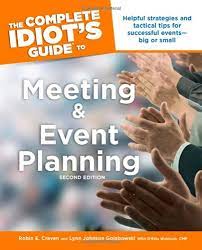
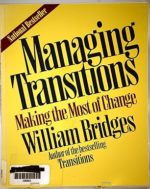
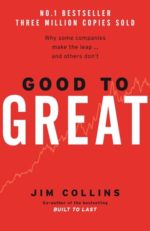
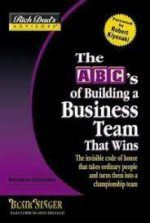
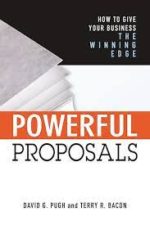



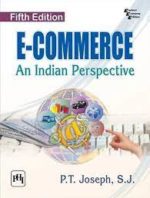
Be the first to review “The Complete Idiot’s Guide to Meeting & Event Planning, 2ndEdition Paperback”